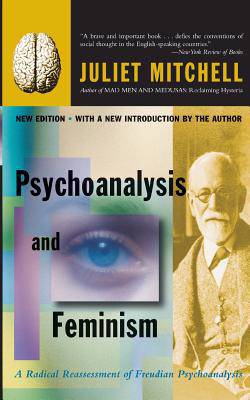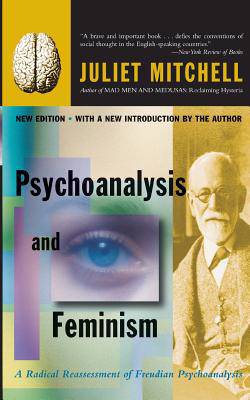
- Afhalen na 1 uur in een winkel met voorraad
- Gratis thuislevering in België vanaf € 30
- Ruim aanbod met 7 miljoen producten
- Afhalen na 1 uur in een winkel met voorraad
- Gratis thuislevering in België vanaf € 30
- Ruim aanbod met 7 miljoen producten
Zoeken
Psychoanalysis and Feminism
A Radical Reassessment of Freudian Psychoanalysis
Juliet Mitchell, Sangay K Mishra
Paperback | Engels
€ 36,95
+ 73 punten
Omschrijving
In 1974, at the height of the women's movement, Juliet Mitchell shocked her fellow feminists by challenging the entrenched belief that Freud was the enemy. She argued that a rejection of psychoanalysis as bourgeois and patriarchal was fatal for feminism. However it may have been used, she pointed out, psychoanalysis is not a recommendation for a patriarchal society, but rather an analysis of one. "If we are interested in understanding and challenging the oppression of women," she says, "we cannot afford to neglect psychoanalysis." In an introduction written specially for this reissue, Mitchell reflects on the changing relationship between these two major influences on twentieth-century thought. Original and provocative, Psychoanalysis and Feminism remains an essential component of the feminist canon.
Specificaties
Betrokkenen
- Auteur(s):
- Uitgeverij:
Inhoud
- Aantal bladzijden:
- 496
- Taal:
- Engels
Eigenschappen
- Productcode (EAN):
- 9780465046089
- Verschijningsdatum:
- 11/09/2000
- Uitvoering:
- Paperback
- Formaat:
- Trade paperback (VS)
- Afmetingen:
- 136 mm x 203 mm
- Gewicht:
- 526 g

Alleen bij Standaard Boekhandel
+ 73 punten op je klantenkaart van Standaard Boekhandel
Beoordelingen
We publiceren alleen reviews die voldoen aan de voorwaarden voor reviews. Bekijk onze voorwaarden voor reviews.











